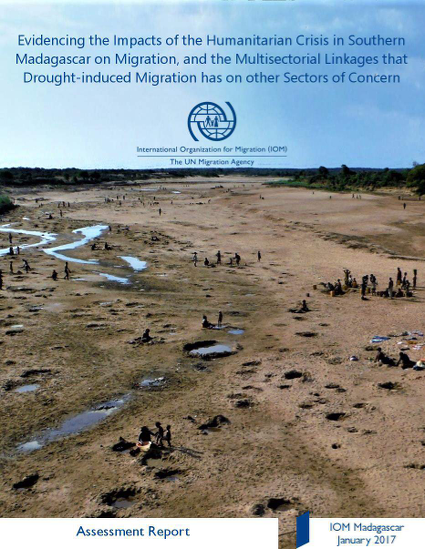
This report presents qualitative research conducted by the IOM in Madagascar in December 2016 to assess the effect of drought on migration in the Grand Sud; whether there has been an increase in outmigration during the current humanitarian crisis (since 2013); and the key sectors of intervention that affect migration in the Grand Sud, and in turn, how migration affects these sectors. The methodology consisted of a compilation and review of relevant literature and a qualitative field study in the Androy and Anosy regions with the support and collaboration of the Bureau National de Gestion des Risques et des Catastrophes (BNGRC).
There is an apparent correlation between the latest episode of severe drought and a significant migratory flow – beyond the well-documented phenomena of traditional mobility from the region since the 1970s. According to the results of the rapid assessment, 88 per cent of respondents believe that the main reason for out-migration was the drought.
The study recommends a targeting of humanitarian aid that integrates migration indicators among the vulnerability criteria. Short-term responses are proposed, including tracking of displacement and migration trends through the deployment of tools such as the Displacement Tracking Matrix (DTM) to ensure reliable and regular data on migratory movements and related multisectoral needs is available to stakeholders. In the medium term, the implementation of stabilization and recovery programs for drought-affected communities and the facilitation of the migrants’ integration in destination areas are to be achieved. Lastly, the long-term goal would be to seek and ensure that communities are well prepared to droughts and that Government and other actors have strengthened capacities to respond to drought-induced migrations.